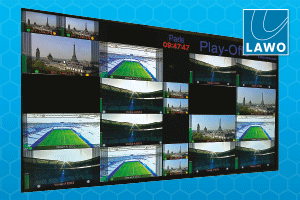The forum aims to exchange experiences and bring together specialists in the fields of GIS and Remote Sensing to showcase the best practices in spatial geography
 Mohammed bin Rashid Space Centre (MBRSC) participated in the Middle East Geospatial Forum 2016 and GIS & Remote Sensing Annual Scientific Forum (GRASF 2016). The forum aims to exchange experiences and bring together specialists in the fields of GIS and Remote Sensing to showcase the best practices in spatial geography. Engineer Adnan Al Rais, Manager of Business Development Office of MBRSC, delivered a keynote address at GRASF, highlighting the Centres initiatives and projects to support Dubai Smart City initiative, through the use of remote sensing techniques, space applications and other related projects.
Mohammed bin Rashid Space Centre (MBRSC) participated in the Middle East Geospatial Forum 2016 and GIS & Remote Sensing Annual Scientific Forum (GRASF 2016). The forum aims to exchange experiences and bring together specialists in the fields of GIS and Remote Sensing to showcase the best practices in spatial geography. Engineer Adnan Al Rais, Manager of Business Development Office of MBRSC, delivered a keynote address at GRASF, highlighting the Centres initiatives and projects to support Dubai Smart City initiative, through the use of remote sensing techniques, space applications and other related projects.
Eman Al Tunaiji, Engineer in the Applications Development and Analysis at MBRSC, also participated in a panel discussion at GRASF entitled “Smart Municipalities and Smart Cities”, during which she discussed the SAFIY Project and how it would serve municipalities and smart cities in providing information on the different infrastructure of buildings, road networks and transportation, in addition to vegetation and water.
Salem Al Marri, Assistant Director General for Scientific and Technical Affairs, MBRSC said: MBRSC was honoured to participate in the Middle East Geospatial Forum 2016 and GRASF 2016. Middle East Geospatial Forum is a leading event that represents an important addition to the agenda of international events held in Dubai. The forum is of great importance as it discusses the various Geospatial uses, applications and solutions, through combining technological innovation, sustainable development and outstanding services for the comfort and happiness of the people. Dubai is a leading model among the world’s cities in this regard, especially after the completion of transforming the emirate into a smart city and laying the necessary institutional and legislative foundation and frameworks, to be proactive in the implementation of advanced strategies and methodologies in the management of cities, depending on the highest technology and modern applications.”
“The centre is keen to launch projects, initiatives and satellite applications that serve the new reality and model in life and development in Dubai, in order to achieve sustainable development, Al Marri concluded.
The SAFIY project is a system designed to automatically capture the most prominent landmarks from DubaiSat-2 images, in addition to providing three-dimensional information. Among the most prominent landmarks captured by this smart system is the road network, buildings, green and water landscapes. This project is one of the most innovative technologies developed by the MBRSC team, as the system automatically captures the landmarks without the users intervention. It also automatically updates the government entities database.














































































